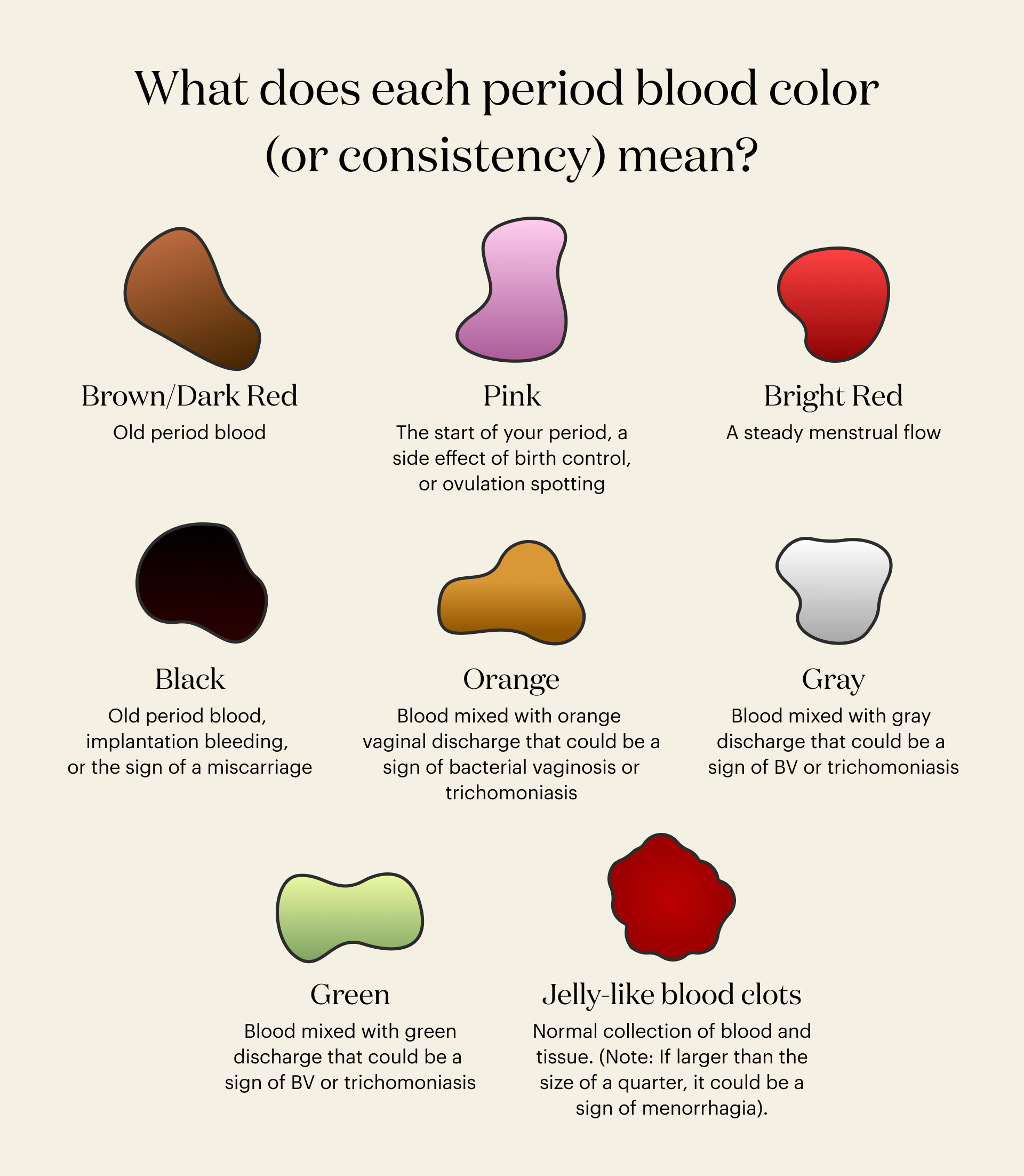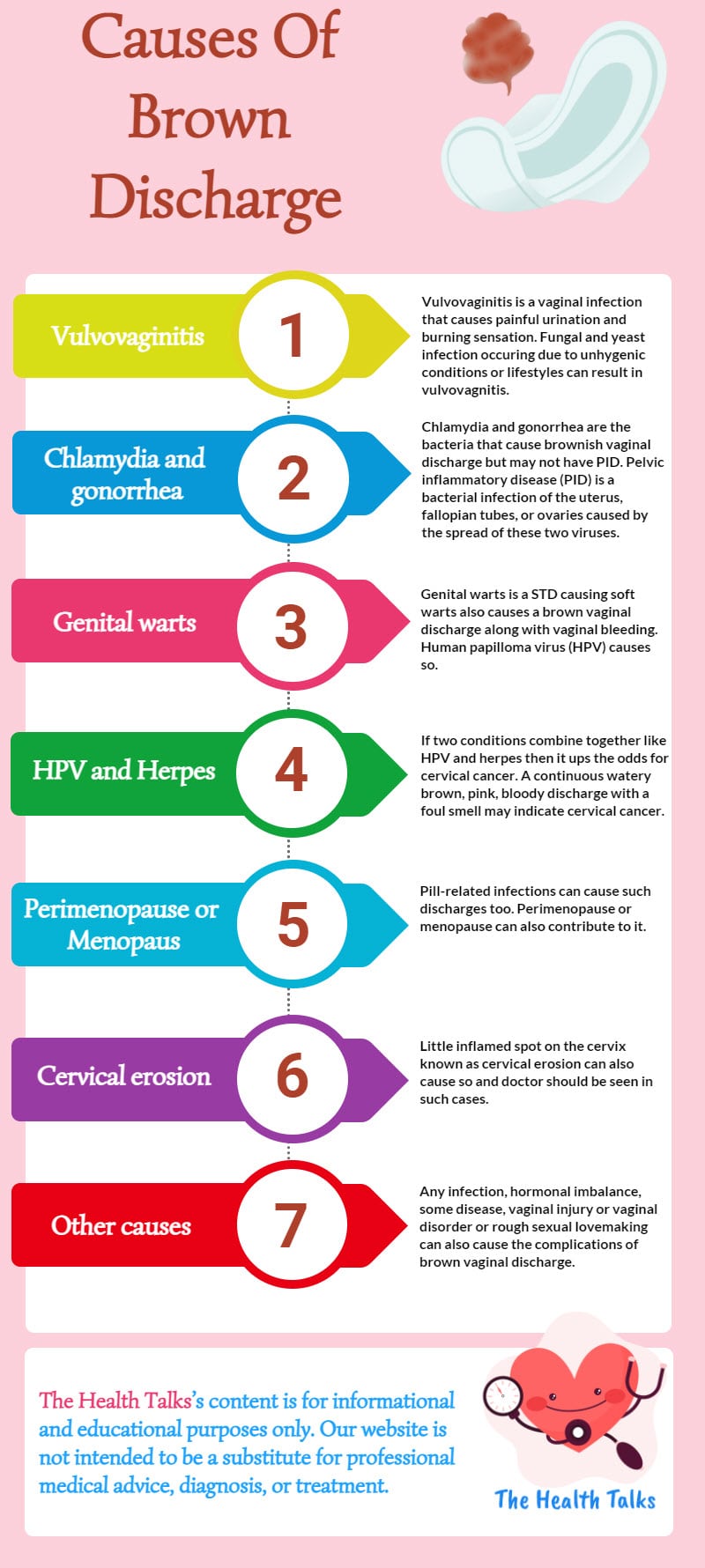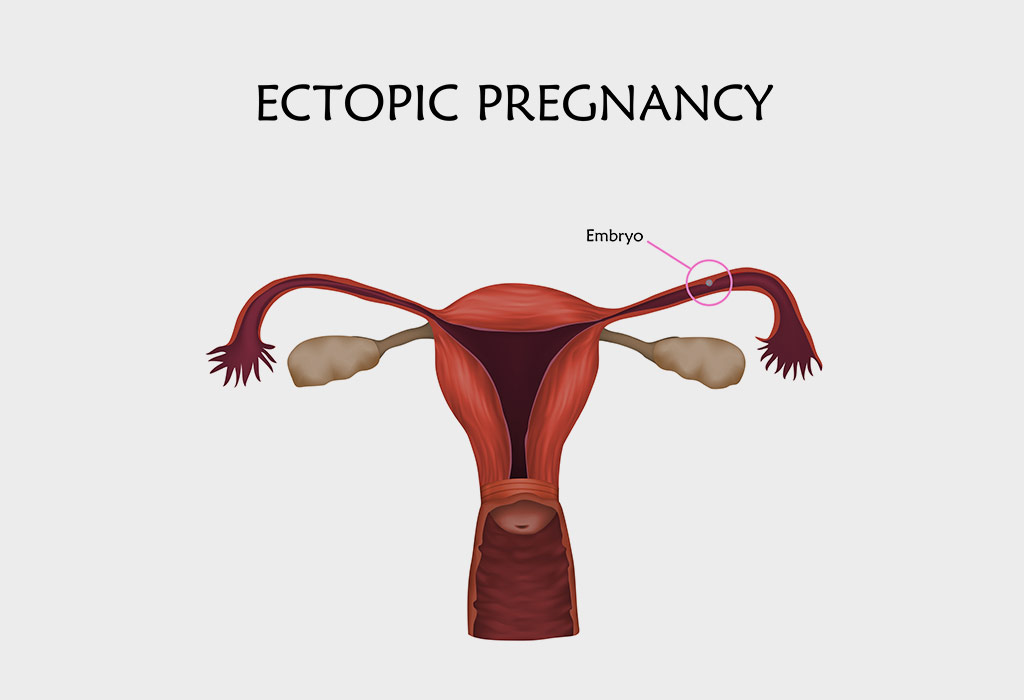What Does Brown Discharge Mean When Pregnant - Brown discharge is often old blood which has turned from red to brown and is usually nothing to be concerned about, but if it continues, you can seek advice from your. One of the most common causes of brown discharge and spotting in early pregnancy is cervical irritation. What causes brown discharge during. A combination of hormonal changes and increased blood flow in the body makes the cervix extra sensitive during. What causes brown discharge during pregnancy? Brown discharge can also mean early pregnancy in some cases. The good news is, brown discharge during pregnancy is usually normal and very likely does not mean something is wrong with you or your baby. Brown discharge is usually the result of old menstrual blood that's mixed with vaginal fluids. In most cases, it’s completely harmless. It is more commonly noted during the first trimester and can last for up to 3 days.
Brown discharge during pregnancy is normal, and can be noticed when wiping. A combination of hormonal changes and increased blood flow in the body makes the cervix extra sensitive during. What causes brown discharge during. The good news is, brown discharge during pregnancy is usually normal and very likely does not mean something is wrong with you or your baby. What causes brown discharge during pregnancy? Brown discharge is usually the result of old menstrual blood that's mixed with vaginal fluids. Brown discharge can also mean early pregnancy in some cases. In most cases, it’s completely harmless. It is more commonly noted during the first trimester and can last for up to 3 days. One of the most common causes of brown discharge and spotting in early pregnancy is cervical irritation.
One of the most common causes of brown discharge and spotting in early pregnancy is cervical irritation. It is more commonly noted during the first trimester and can last for up to 3 days. Brown discharge can also mean early pregnancy in some cases. Brown discharge is usually the result of old menstrual blood that's mixed with vaginal fluids. The good news is, brown discharge during pregnancy is usually normal and very likely does not mean something is wrong with you or your baby. Brown discharge is often old blood which has turned from red to brown and is usually nothing to be concerned about, but if it continues, you can seek advice from your. What causes brown discharge during. In most cases, it’s completely harmless. Brown discharge during pregnancy is normal, and can be noticed when wiping. A combination of hormonal changes and increased blood flow in the body makes the cervix extra sensitive during.
What Does Milky Brown Discharge Mean at Frank Cecil blog
One of the most common causes of brown discharge and spotting in early pregnancy is cervical irritation. It is more commonly noted during the first trimester and can last for up to 3 days. What causes brown discharge during pregnancy? Brown discharge during pregnancy is normal, and can be noticed when wiping. Brown discharge is usually the result of old.
Brown Discharge During Pregnancy 10 Top Causes, Symptoms and Treatment
Brown discharge is usually the result of old menstrual blood that's mixed with vaginal fluids. It is more commonly noted during the first trimester and can last for up to 3 days. One of the most common causes of brown discharge and spotting in early pregnancy is cervical irritation. What causes brown discharge during. Brown discharge can also mean early.
What is brownish discharge in early pregnancy, and what does it mean
Brown discharge during pregnancy is normal, and can be noticed when wiping. In most cases, it’s completely harmless. What causes brown discharge during. What causes brown discharge during pregnancy? Brown discharge is often old blood which has turned from red to brown and is usually nothing to be concerned about, but if it continues, you can seek advice from your.
How to Stop Brown Discharge During Pregnancy? What to Do?
Brown discharge can also mean early pregnancy in some cases. What causes brown discharge during pregnancy? Brown discharge during pregnancy is normal, and can be noticed when wiping. The good news is, brown discharge during pregnancy is usually normal and very likely does not mean something is wrong with you or your baby. Brown discharge is often old blood which.
Understanding The Occurrence Of Brown Clot Discharge During Pregnancy
What causes brown discharge during pregnancy? One of the most common causes of brown discharge and spotting in early pregnancy is cervical irritation. What causes brown discharge during. It is more commonly noted during the first trimester and can last for up to 3 days. A combination of hormonal changes and increased blood flow in the body makes the cervix.
Brown Discharge During Pregnancy Is It Normal And Causes
In most cases, it’s completely harmless. What causes brown discharge during pregnancy? Brown discharge can also mean early pregnancy in some cases. Brown discharge during pregnancy is normal, and can be noticed when wiping. Brown discharge is usually the result of old menstrual blood that's mixed with vaginal fluids.
Brown Discharge During Pregnancy Is It Normal And Causes
What causes brown discharge during. One of the most common causes of brown discharge and spotting in early pregnancy is cervical irritation. Brown discharge is often old blood which has turned from red to brown and is usually nothing to be concerned about, but if it continues, you can seek advice from your. In most cases, it’s completely harmless. It.
💖 Brown Vaginal Discharge Types, Symptoms, Causes
It is more commonly noted during the first trimester and can last for up to 3 days. The good news is, brown discharge during pregnancy is usually normal and very likely does not mean something is wrong with you or your baby. Brown discharge is usually the result of old menstrual blood that's mixed with vaginal fluids. Brown discharge can.
Causes of brown discharge in pregnancy
It is more commonly noted during the first trimester and can last for up to 3 days. A combination of hormonal changes and increased blood flow in the body makes the cervix extra sensitive during. Brown discharge is usually the result of old menstrual blood that's mixed with vaginal fluids. One of the most common causes of brown discharge and.
Brown Discharge Causes, Symptoms and Treatment Essential oils for
The good news is, brown discharge during pregnancy is usually normal and very likely does not mean something is wrong with you or your baby. Brown discharge is usually the result of old menstrual blood that's mixed with vaginal fluids. Brown discharge during pregnancy is normal, and can be noticed when wiping. A combination of hormonal changes and increased blood.
In Most Cases, It’s Completely Harmless.
One of the most common causes of brown discharge and spotting in early pregnancy is cervical irritation. Brown discharge is often old blood which has turned from red to brown and is usually nothing to be concerned about, but if it continues, you can seek advice from your. Brown discharge can also mean early pregnancy in some cases. It is more commonly noted during the first trimester and can last for up to 3 days.
What Causes Brown Discharge During Pregnancy?
What causes brown discharge during. Brown discharge is usually the result of old menstrual blood that's mixed with vaginal fluids. Brown discharge during pregnancy is normal, and can be noticed when wiping. The good news is, brown discharge during pregnancy is usually normal and very likely does not mean something is wrong with you or your baby.








